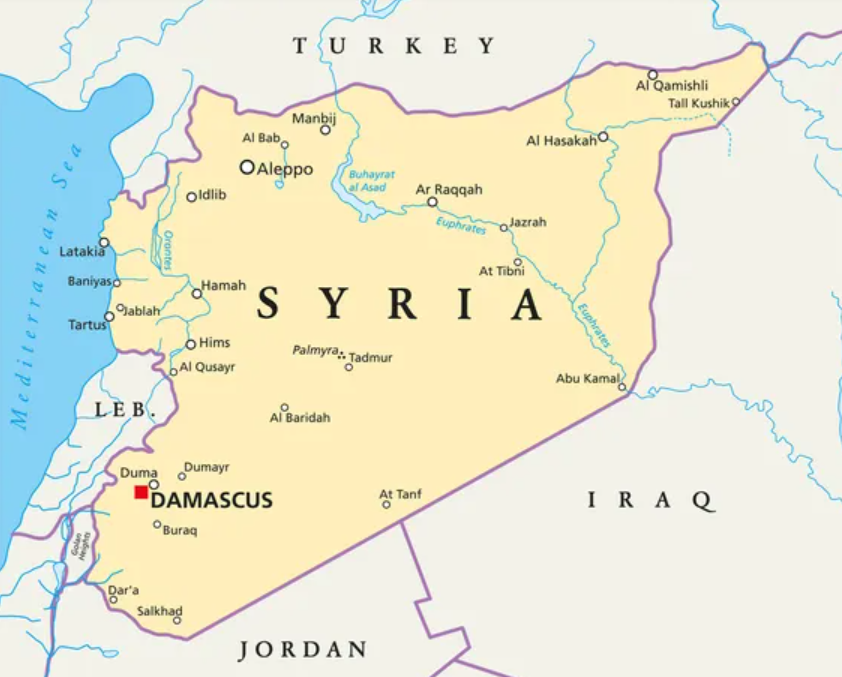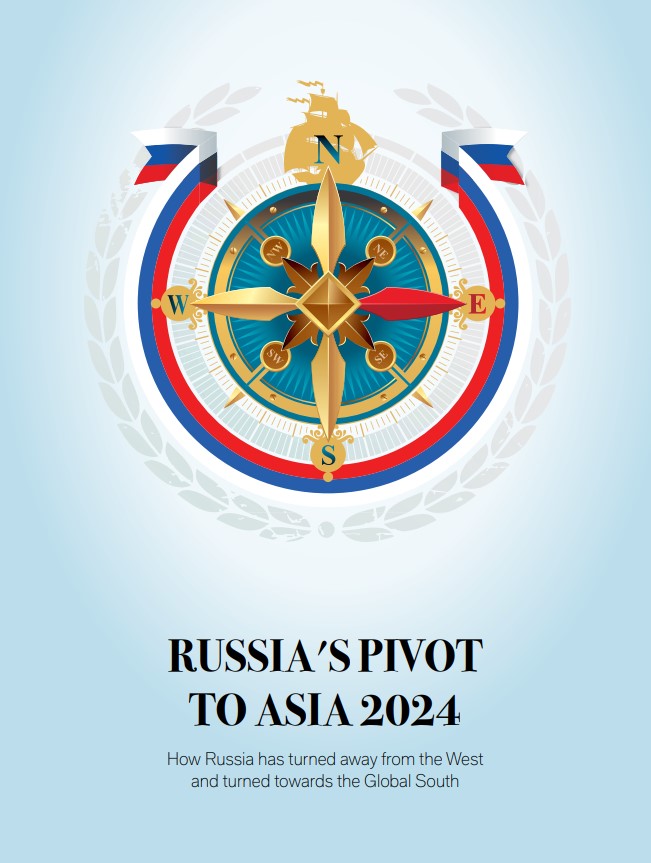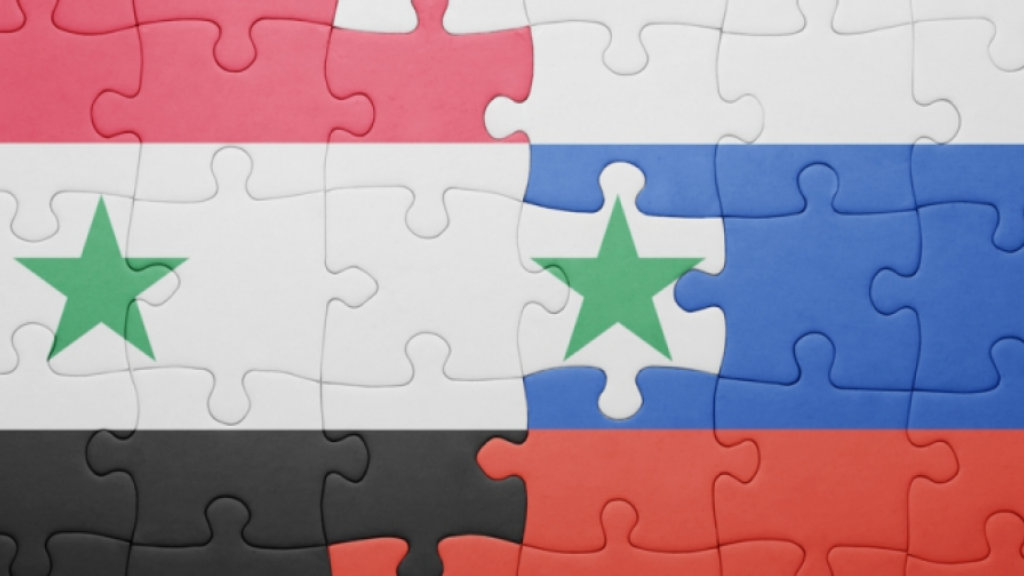Russia’s Foreign Minister Sergey Lavrov gave a speech concerning the 80th anniversary of diplomatic relations between Russia and Syria on July 19, in Moscow. He outlined the historic relations between the two countries and future developments. We reproduce his comments below:
“Russian-Syrian diplomatic relations were established on July 21, 1944 at the height of WWII. You don’t need me to tell you what a difficult time it was for our respective countries and the world at large. Today, we are once again living through hard times. The collective West led by the United States has challenged the natural course of history and the processes leading to a more sustainable and just world order without hegemons, or colonial and neo-colonial practices, where countries will be able to cooperate on the basis of equality and balance of interests. Russia and Syria are at the leading edge of the pursuit of truth and justice worldwide.
We appreciate Damascus providing principled support for the special military operation in defence of Russian people, the Russian language and culture. The operation has given a powerful boost to strengthening the polycentric basis of international life. Many Global Majority countries that share similar perspectives agree that the push of the ruling circles of the Western countries to impose a unipolar dictatorship on the international community is doomed.
I am convinced that no one will succeed in preventing our Syrian friends or us from upholding our vital interests, sovereignty, and political independence. We will continue to pursue an independent foreign policy and to strengthen ties with the countries that are willing to abide by the principles of equality and mutual respect.
Syria is our reliable and time-tested ally and an important partner in the international arena. Our joint efforts made it possible for us to put out the hotbed of international terrorism in Syria. A stable ceasefire regime is maintained in the country. Not without difficulty, peaceful life is gradually returning to Syria.
President Vladimir Putin maintains communication with Bashar al-Assad. The respective foreign policy agencies cooperate closely as well. In January, I met with my colleague and friend Syrian Minister of Foreign Affairs and Expatriates Faisal Mekdad in Moscow twice.
Extensive contacts are maintained at the level of our respective defence agencies and the ministries dealing with socioeconomic issues. In October 2023, the co-chairs of the Permanent Russian-Syrian Commission on Trade, Economic, Scientific and Technical Cooperation signed an intergovernmental agreement on expanding trade and economic cooperation.
Both sides focus intensely on promoting, cultural, humanitarian, scientific and educational contacts. Thousands of Syrians are studying at our universities. Members of academic circles and cultural groups are actively interacting. Syria’s interest in the Russian language is growing which is comforting to know. More than 36,000 Syrian pupils and university students are currently studying it. We will do our best to help expand this area of reciprocal educational ties.
I’m convinced that relations between Russia and Syria will continue to make steady progress based on the countries’ extensive historical experience and in the spirit of long-standing friendship between our countries and peoples.”

From the point of view of Damascus, Russia is an important geopolitical and economic partner. Moscow’s support for Syria to maintain the security, stability, and development of the country, cancelling all unilateral sanctions, increasing cooperation in economic fields, and supporting the government’s efforts to rebuild following the US backed civil war, which is still on-going since 2011, is in the interest of Damascus.
Moscow’s rivalry with Washington, Syria’s strategic position in the Middle East, and the Eastern Mediterranean are also important for Russia’s long-term interests.
In the most recent 2023 Russian Foreign Policy Concept, Moscow is paying attention to the development of relations with various regional trade blocs, opportunities for the development of global trade and investment, the balance of global power, the creation of a multipolar international system, and strengthening cooperation with Islamic countries. Also, in this document, Moscow has paid attention to providing comprehensive support to Syria.
Syria is a crude oil producer in the Eastern Mediterranean with significant gas reserves. In the past few decades, several agreements in the oil and gas fields were signed between Moscow and Damascus.
In May 2019, Damascus asked for help with energy production projects, and three contracts for exploration, drilling, and production in the oil sector were approved in December 2019. Between September 2019 and January 2020, Syria awarded four new oil exploration contracts to several Russian companies. In 2021, the Syrian government approved a contract with the Russian company Capital Limited for oil exploration in the Mediterranean Sea. Also, the signing of a contract in March 2022 between Russia’s Ros EnergoStroy Levant (RESL), and Damascus to build a 25-megawatt (MW) gas turbine power plant in Aleppo is of strategic importance.
Russian companies have a significant presence in Syria’s infrastructure, energy, and tourism industries. Numerous agreements and contracts for the construction and renovation of power plants have been awarded to Russian investors, including a prominent role in the reconstruction of Tartus port, the modernization of a fertilizer production plant in Homs, and the reconstruction of several oil and gas fields and refining institutions.
The United Nations estimated in 2020 that Syrian economic losses exceeded US$$442 billion. Syria’s economic problems and the massive reduction in GDP, are problematic for the Syrian economy. Oil, agriculture, industrial production, and the tourism industry are sources of income for the Syrian government, and investments have been made for revival.
Russia has also declared several times its willingness to help in the reconstruction of Syria and is helping to rebuild the Syrian economy. Russia has also declared several times its willingness to help in the reconstruction of Syria and is helping to rebuild the Syrian economy.
Syria was one of the world’s largest phosphate exporters before the 2011 war. Stroytransgaz (STG) company diversified its investments and signed three major contracts in 2018 and 2019 for phosphate production. Apart from mining, other Russian companies have invested in this country.
Agreements were also made to select 200 Russian and Syrian companies to participate in joint projects for reconstruction. In 2020, Russia announced an agreement with Damascus to implement 40 new economic investment projects. Russian companies are now present in Syria in the fields of transportation, technology, irrigation, and water resources, as well as active training of Syrian personnel.
Russia and Syria signed a memorandum to strengthen cooperation in the pharmaceutical and medical sectors in October 2023.
The volume of trade between Russia and Syria decreased by more than three times from 2008 to 2014, but the volume of trade turnover has increased significantly since 2021 and is now at the highest level for over a decade. Russia’s main exports to Syria are mostly food products such as wheat, sunflower oil, flour, wood products, and industrial equipment. Syria’s exports to Russia have also increased. Russia has imported fruits such as cherries, oranges, pomegranates, dried fruits, minerals (especially phosphates), some types of fabrics, medicines, home furniture, shoes, and household tools, from Syria.
Current bilateral trade volumes are estimated to be about US$1 billion with about 65% of this Russian exports.
Further Reading

Russia and the MENA Region
Russia’s relationship with Syria and the entire MENA region is extensively discussed in our 2024 Russia’s Pivot To Asia guide. This is a complimentary download and can be accessed in English here and Russian here.

 Русский
Русский













